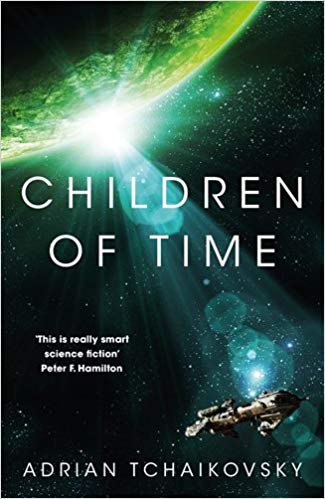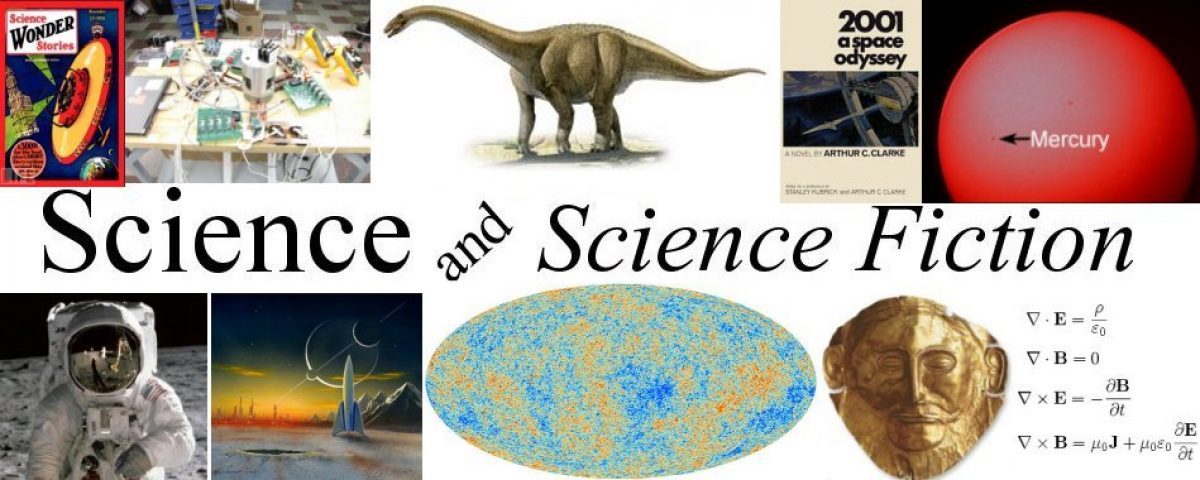Winner of the Arthur C. Clarke award for science fiction book of the year in 2016, ‘Children of Time’ is the first science fiction novel of fantasy author Adrian Tchaikovsky. Receiving an award like the Clarke first time out is quite an achievement so hopefully we’ll be reading a lot more from Mr. Tchaikovsky.

‘Children of Time’ begins at least a few hundred years from now. The exact time frame of the novel is never given but humanity has colonized most of the solar system and is starting to Terraform planets around nearby stars so its not in the near future. There is a heated debate however over just how to Terraform these new Earths. There are those who simply believe that Earth’s biosystem, human dominated of course, should be transferred to these new worlds. Others however, feel that these planets should be seeded with life but be allowed to evolve on their own.

Doctor Avrana Kern belongs to the latter group of experimentalists; in fact she is the leader of one such project. The Green World, that’s all it’s ever called in ‘Children of Time’, around which her starship orbits now has a functioning ecology and is ready to receive a collection of primates, ‘monkeys’ who will evolve into the planet’s intelligent masters, or so Kern intends.
Kern has even cooked up a special ‘nanovirus’ that will speed up the evolution of the monkeys! This nanovirus (and aren’t all viruses kind of nano?) is the biggest ‘suspend your belief’ concept in ‘Children of Time’. Designed to work only on primates, not other vertebrates it quickly becomes a ‘deus ex machina’ to solve any plot problems Tchaikovsky encounters in the novel.

Anyway, a mutiny on the starship by the conservatives leads to both the shipment of monkeys and even the ship itself being destroyed. To make matters worse a general war has broken out back on Earth obliterating civilization and leaving the Green World to evolve as it will.
At this point ‘Children of Time’ really breaks into two novels, and at 600 pages it is long enough for two complete novels. One story line involves the evolution of a race of intelligent spiders on the Green World, remember I said the nanovirus doesn’t work on vertebrates other than primates, it works quite well on arthropods however, especially spiders.

The second storyline involves a group of the last human survivors from Earth. The planet is now so completed poisoned that the survivors’ only hope is a huge space ark, a sleeper ship with a cargo of thousands of humans in hibernation. The plan is to travel to one of the Terraformed worlds and try to rebuild civilization. Guess which world they’re heading for?
The space ark is involved in several mutinies, a maniac commander and has people popping in and out of hibernation more often than in any story I’ve ever seen. By the end of their several hundred year long journey the ark is barely in working shape, humanity’s only remaining hope is the Green World.

The two storylines collide at this point and I’m sure you can guess what the climax consists of. That is the weakest part ‘Children of Time’, after reading one third on the novel you pretty much know how it’s going to end, at least in general terms. Another thing is that nanovirus, for me at least it was just a little too good to be true. It becomes a bit too integral to the development of spider civilization. Finally, after all of the problems that the ark ship encounters during its voyage you can hardly believe it’s working at all by the time it reaches the Green World. Space is a very hostile environment remember!
Still, ‘Children of Time’ was a very interesting read, it managed to keep my attention quite well through its entire 600 pages. I’ll be looking forward to seeing what other science fiction novels Mr. Tchaikovsky comes up with in the future.
